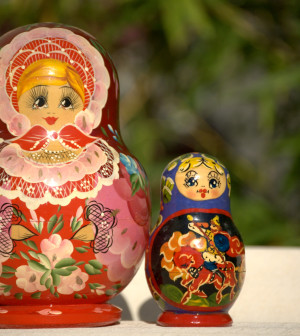- Could Your Grocery Store Meat Be Causing Recurring UTIs?
- Are You Making This Expensive Thermostat Error This Winter?
- Recognizing the Signs of Hypothyroidism
- 10 Strategies to Overcome Insomnia
- Could Artificial Sweeteners Be Aging the Brain Faster?
- Techniques for Soothing Your Nervous System
- Does the Water in Your House Smell Funny? Here’s Why
- Can a Daily Dose of Apple Cider Vinegar Actually Aid Weight Loss?
- 6 Health Beverages That Can Actually Spike Your Blood Sugar
- Treatment Options for Social Anxiety Disorder
Bear Belly Might Hold Clues to Obesity in Humans

Changes in their gut microbes help bears prepare for hibernation, according to laboratory research that may hold clues for combating obesity in people.
As they prepare to hunker down for the winter, bears eat as much as possible, to boost their body fat. Despite the rapid weight gain, they don’t suffer the health problems associated with obesity in people, Swedish researchers noted.
The team analyzed fecal samples from wild brown bears and found seasonal changes in gut microbe populations. In the summer, the gut microbe population is more diverse and takes in more energy from food.
In winter, during hibernation, the gut microbe population is less diverse, according to the study published Feb 4 in the journal Cell Reports.
The researchers transferred the gut microbes from the bears into mice. Those that received the bears’ summer gut microbes put on more fat and weight than those that received the bears’ winter gut microbes.
Despite putting on more fat and weight, the mice that received the bears’ summer gut microbes had either no change or even a slight improvement in their sugar (glucose) metabolism, compared to those who received the bears’ winter gut microbes, the study found.
Potentially, the findings could point to new ways to manage obesity in people, said study leader Fredrik Backhed, of the University of Gothenburg.
It’s too early to say for sure, “as I consider this being very basic science,” he said in a journal news release. “However, if we learn more about which bacteria and the functions that promote and/or protect against obesity [in hibernating bears], we may identify new potential therapeutic targets.”
Also, results of animal experiments often aren’t replicated in humans.
In previous research, Backhed and colleagues found that the composition of gut microbe populations can affect the amount of energy gathered from food, and that these populations change in people who are obese or have type 2 diabetes.
More information
The U.S. Centers for Disease Control and Prevention explains how to prevent weight gain.
Source: HealthDay
Copyright © 2026 HealthDay. All rights reserved.










